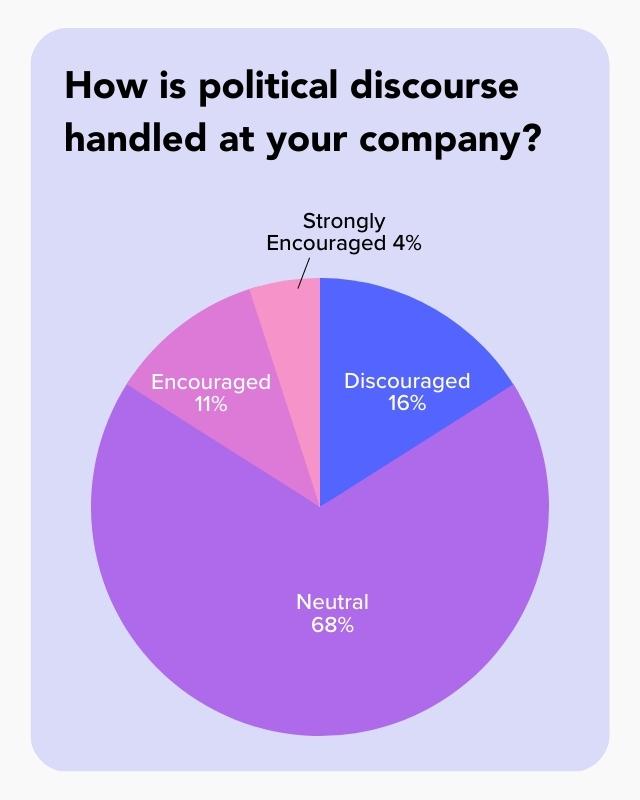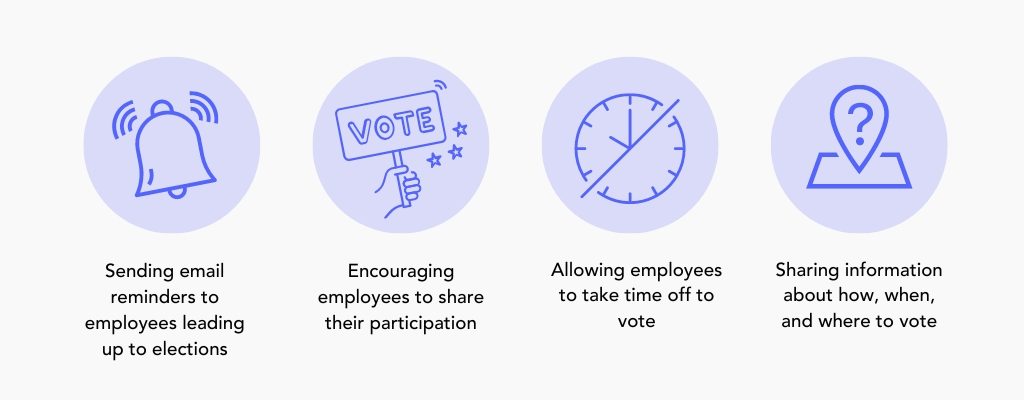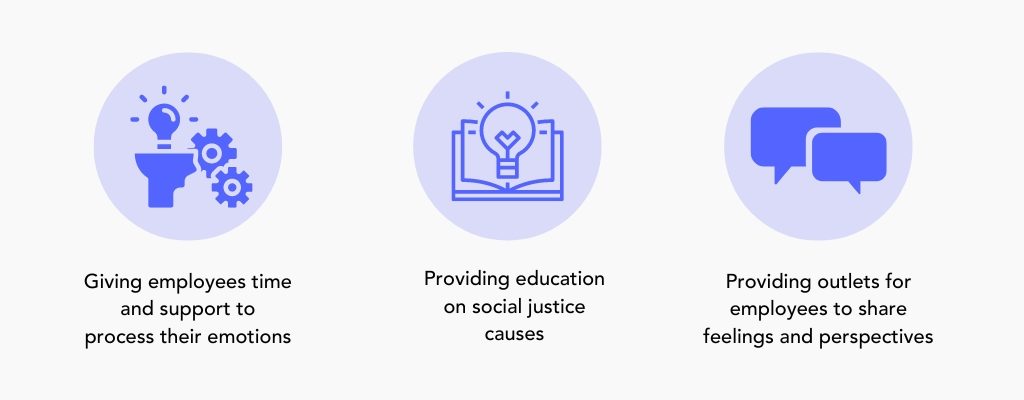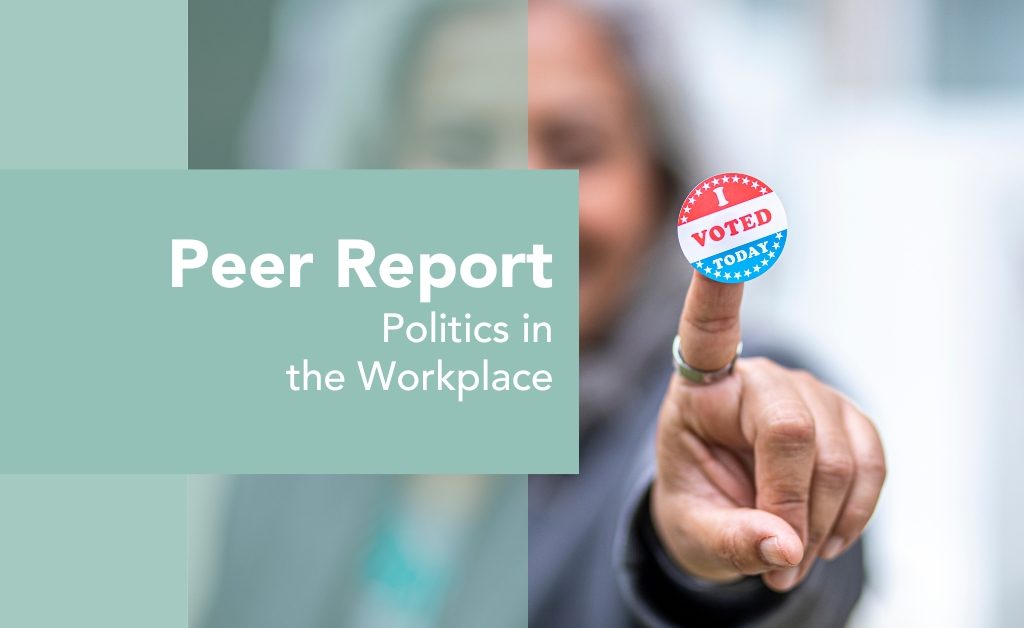Political polarization is at an all-time high in the United States, leaving companies wondering whether they should limit political discussions in the workplace. Some experts believe that open political discourse at work is just part of expression; others feel that it only causes distraction and division.
JobSage wanted to find out more about what policies and practices employers are implementing to encourage— or discourage— political discourse at work. Here’s what we learned.

How do companies handle political discourse in the workplace?
We asked HR professionals to respond to “How is political discourse handled at your workplace?” on a 1 to 5 scale, with 1 being “strongly discouraged” and 5 being “strongly encouraged”. Of respondents:
- 16% said their company discourages political discourse
- 68% said their company neither encourages nor discourages political discourse
- 11% said their company encourages discourse
- 5% said their company strongly encourages political discourse
No respondents reported that their company strongly discourages political discussion.
What does it look like in practice?
We also asked respondents to share examples of what your answers looked like in practice.
Responses ranged from actively promoting voting participation to taking a hands-off approach to creating policies limiting political discussions in the office. Here’s a deeper look at what people said.
Actively promoting civic participation
Most respondents noted that their company does not allow employees to promote specific political parties or candidates; however, civic participation is still encouraged in their office. In our survey, over 20% noted that their organization encourages voting during election season.

Companies noted the many ways they promote participate over politics. Many employers we surveyed value voter education, whether it’s sending email reminders to employees leading up to elections or sharing information about how, when, and where to vote. One company noted a policy that allows employees to go vote during the workday, making going to the polls easy and stress-free. Others encourage employees to share their “I voted!” stickers in designated Slack channels.

Taking a stand on social issues
Several respondents noted that while they do not endorse candidates or parties, their company is devoted to DEI and taking a stand on social issues such as Black Lives Matter, women’s rights, and LGBTQ+ education— which oftentimes has political connotations.

Companies have found ways to support their employee and these movements in different ways. Examples included giving employees time and support to process their emotions, providing education on social justice topics, and providing outlets for employees to share their feelings and perspectives.

Keeping politics out of the office
About 11% of respondents noted official policies aimed to keep political conversations out of the workplace. Though these employer encourage employees to bring their authentic selves to work, these rules are designed to promote respect and curb division and conflict.
Others have taken a more hands-off approach. There may be no official policies, but employees and managers have adopted an unofficial, unspoken “leave it out of the office” stance. When politics do become a topic of conversation, it is kept brief and respectful.
Conclusion
Unfortunately, there is no straightforward answer to whether or not political discourse belongs in the workplace. While some employers believe that this kind of discourse can be beneficial for a productive work environment, others feel that it is inappropriate, leads to division, and should be discouraged. Ultimately, it up to People leaders to decide the best policies for their team.
Want to keep a pulse on trending HR topics? Stay tuned for more Peer Reports from JobSage!
